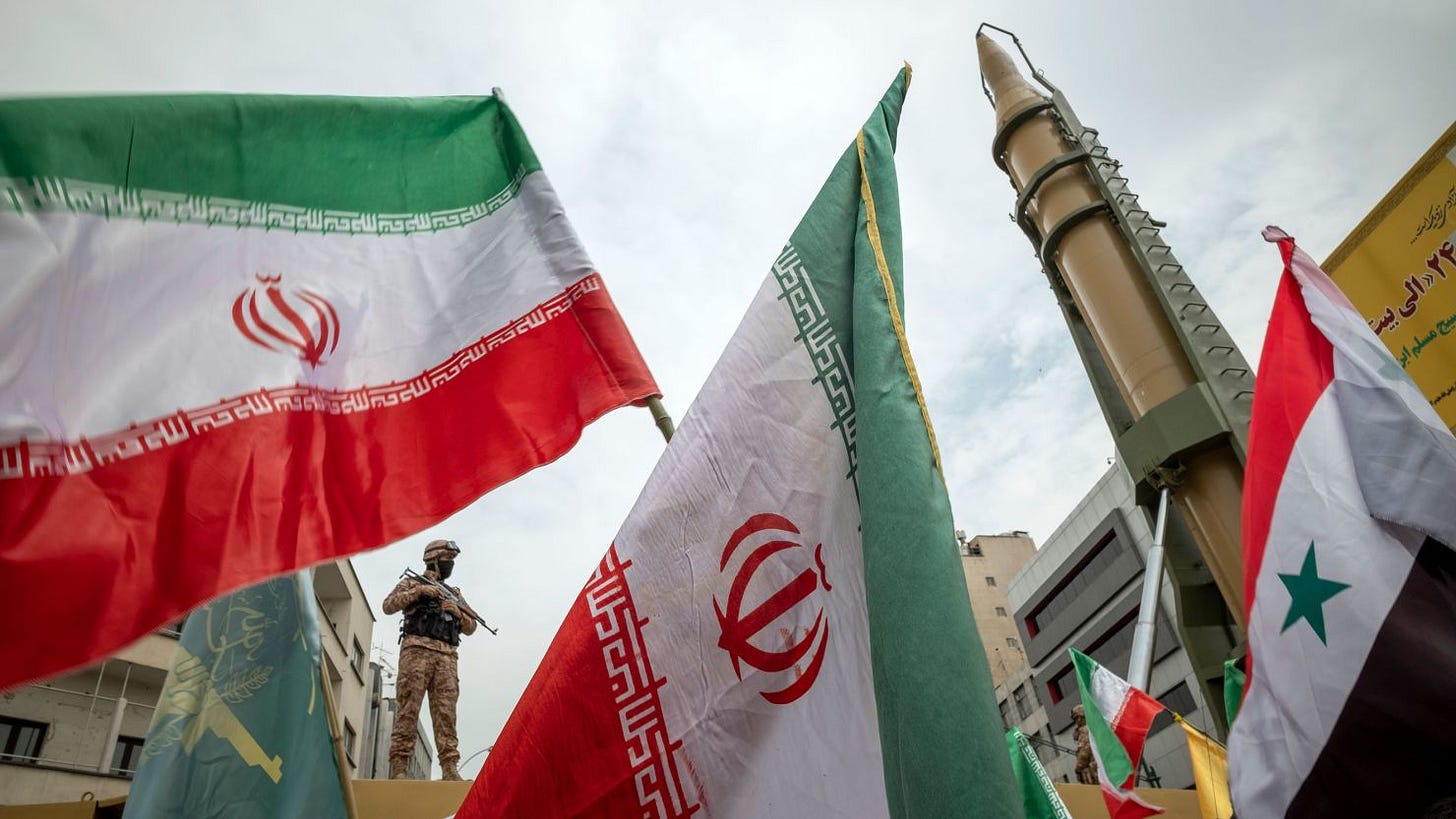Weekend Reading: The Iranian Threat to the UK
Excerpts from a new report by Policy Exchange exploring Islamic Republic of Iran operations in Britain
Concerning the Israel-Palestine conflict, the Sunni-Shia divide has emerged as a prominent factor.
If you don't know…Sunni Muslims, who constitute the majority, do not believe that the Prophet designated a successor, while Shia Muslims, which make up 10% of the Muslim population, believe that the Prophet did.
Despite the bad blood between the two, the Israel-Hamas war has united them. On the other hand, Iran - largely a Shia Muslim nation - absolutely hates Israel.
Part of the larger squirmish is the fact that Iran does not want Israeli - Saudi Arabian relations to become normalized. Saudi Arabia has a majority Sunni Muslim population.
Iran-Israel relations have been in a largely downward spiral since 1979, when Iran’s new Islamist regime embraced an ideology that combined radical Third-Worldism, anti-Imperialism, Arab leftist radicalism, and some Muslim antisemitism. In this world view, Israel was seen as a Western colonial outpost and Zionism as a version of imperialism. - Stimson
Turning to the UK, a growing concern revolves around the presence of numerous bad actors openly operating within free-market societies - including agents of the Islamic Republic of Iran. The challenge is far simpler to articulate than it is to resolve.
Regardless, an excerpt from the below report is quite interesting. Have a quick read and if interested, follow the link to the full report.
A new report by Policy Exchange ‘Tehran calling: The Iranian threat to the UK’ exposes the extent to which the Islamic Republic of Iran poses a unique challenge to both the security and social cohesion of the United Kingdom.
The Islamic Centre of England (ICEL), based in a converted cinema in Maida Vale, West London, is a UK-registered charity.
It describes itself as a Shia religious and cultural centre whose stated aim is: “The advancement of the religion of Islam in accordance with the principles and tenets of the Shi’ah Ithna Ashari Muslim faith; the advancement of education amongst the Muslim community; the provision of facilities in the interests of social welfare for the recreation and leisure-time occupation of Muslims.”
In keeping with this ambition, the ICEL provides a range of community services – for example operating the Teyban School of the Islamic Centre of England since 1998. This currently provides Quran education classes for “230 students in the age groups of 5 to 15 years.”
The ICEL, however, is no ordinary religious charity/institution. Its 1996 memorandum of association stated that ‘at all times at least one of the trustees shall be a representative of the Supreme Spiritual Leadership of the Islamic Republic of Iran’.
At least until 2017, the charity’s accounts included the same sentence: “At all times one of the trustees shall be a representative of the Supreme Spiritual Leadership of the Islamic Republic of Iran.”
Ayatollah Mohsen Araki was the founder and first director of ICEL (in post, September 1994-July 2004). He previously held several key roles within Iran: he headed the Islamic Revolutionary Court in Khuzestan province; he was a member of the Assembly of Experts; and served as general secretary of The World Forum for Proximity of Islamic Schools of Thought (known by the awkward acronym WFPIST). He also founded the Hawza Ilmiyya seminary for Imams in London - an organisation discussed later in this report.
The ICEL website named Araki as the ‘Representative of Imam Khomeini.’ Iranian oppositionists have accused Araki of having overseen a judicial process in his role as head of the Islamic Revolutionary Courts of Khuzestan in the early days of the Iranian revolution in which ‘torture, murder, extrajudicial executions, summary trials and disproportionately long prison sentences for Arab activists’ were alleged to have occurred. More recently, according to his personal website, Ayatollah Araki proclaims those taking part in Iran’s hijab protest movement as guilty of ‘corruption on earth’. That is the charge levied against demonstrators, such as the medical doctor Hamid Ghare-Hasanlou - who have been sentenced to death in the current wave of protests.
Link to full report: https://policyexchange.org.uk/publication/tehran-calling/
More info:
-Shia Triangle in London
-Shia crescent in the Middle East
-The Islamic Human Rights Commission
-What Drives Israel-Iran Hostility? How Might it be Resolved?



